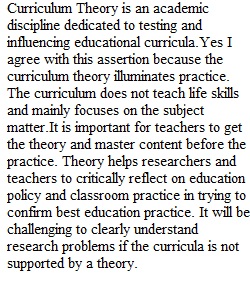


Q Purpose: Graduate students will individually explore, examine, and critically evaluate foundational and current trends and issues in curriculum design and implementation. Clarifying, descriptive, and probing questions related to the required texts and resources provided will be in a reflective, “module reading outline” that will be submitted as a PDF by the due date indicated in Blackboard. Instructions: Answer the questions related to the module outline topics, readings, and resources. a. Reponses should be in a different color than the questions (no answers in black font). b. If specific quotes are highlighted or shared in a response, the quote needs to have a citation/reference in APA (please refer to the 7th edition rules). c. Once the questions have been answered, save the document as a PDF, and submit the completed PDF document in Blackboard by the due date. Structure: There are three (3) sections of the module outline: 1) Textbook/Resource Questions 2) Research Extension Questions 3) Reflection Questions Please ensure that you have answered all questions in all sections before submitting the document to Blackboard! Grading Criteria: Your final score (out of 7 points) will be based on the level and depth of description, examination, evaluation, and reflection of the questions posed by the guiding questions (see below). The rubric will guide you in the evaluation of the module. Note: Although the module outline is not due until the end of the two-week module date on the tentative course calendar, it is strongly suggested to complete the module before the initial blackboard posting as this outline will be helpful in structuring and composing your initial post and responses to peers.
Q 1. In your own terms, define curriculum theory. 2. On page 67, the authors suggest that curriculum theory is “…held in low regard by most practitioners, who often dismiss it as completely unrelated to their day-t0-day work” (Glatthorn, 2019, p. 67). Do you agree with this assertion? Why?3. The authors state “…we are unlikely to get the practice right unless we first get the theory right” (Glatthorn, 2019, p. 67). What is meant by this statement? What are the challenges in embedding curricula into learning spaces when it is not supported by a theory?
View Related Questions